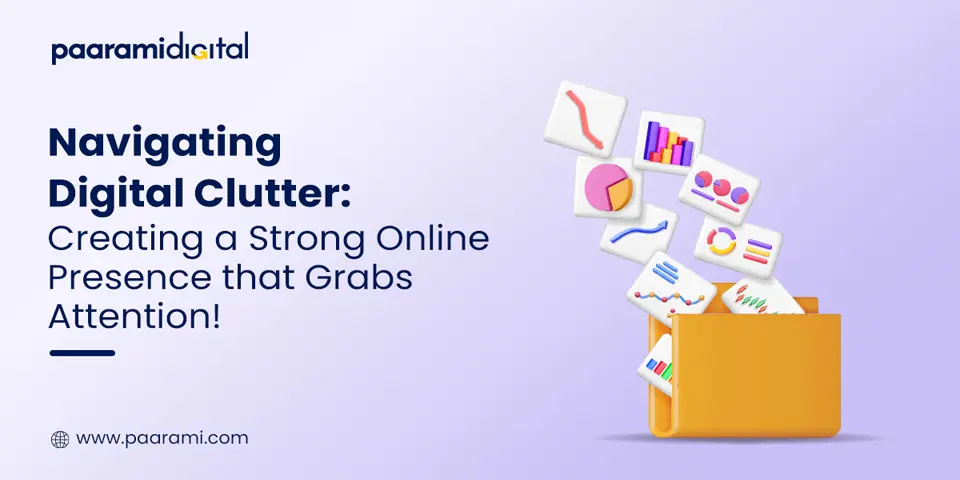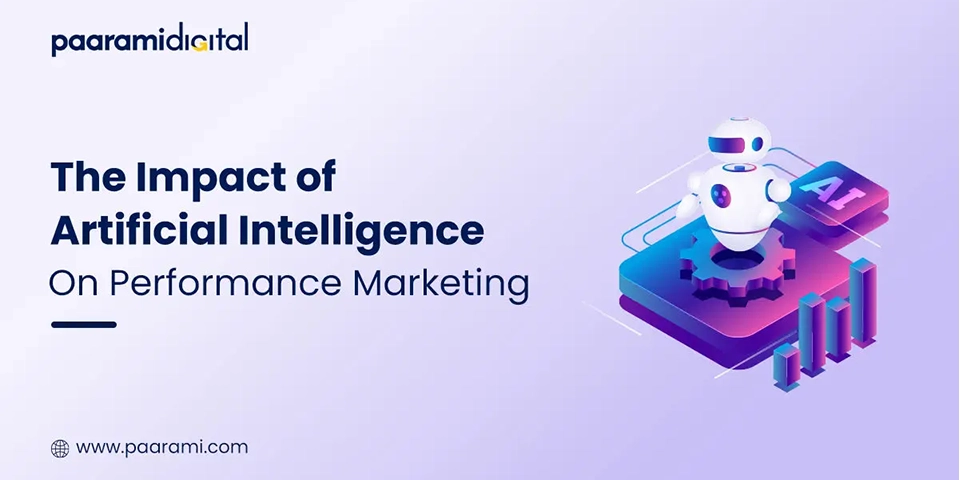
Navigating Digital Clutter: Creating a Strong Online Presence That Grabs Attention!
December 16, 2023
Content Marketing for E-commerce: Strategies to Drive Sales
January 17, 2024In the rapidly evolving landscape of digital marketing, the integration of Artificial Intelligence (AI) has emerged as a game-changer, particularly in the realm of performance marketing. As businesses strive to enhance their online presence and engage with their target audience more effectively, AI technologies are proving to be invaluable tools. This article explores the multifaceted impact of AI on performance marketing, shedding light on the ways in which it transforms strategies, optimizes campaigns, and ultimately reshapes the future of marketing
Data-Driven Decision Making
One of the primary contributions of AI to performance marketing is its ability to process vast amounts of data with unprecedented speed and accuracy. With AI algorithms, marketers can analyze consumer behavior, preferences, and trends in real-time, allowing for data-driven decision-making. This enables marketers to create highly targeted and personalized campaigns, optimizing the overall performance of their marketing efforts.
AI-powered tools, such as machine learning algorithms, can predict customer behavior based on historical data, helping marketers anticipate trends and tailor their strategies accordingly. This predictive capability empowers marketers to allocate resources more efficiently, ensuring that they invest in channels and campaigns with the highest likelihood of success.
Personalization and Customer Experience
Artificial Intelligence plays a pivotal role in elevating the level of personalization in marketing. By analyzing user data, AI algorithms can create detailed customer profiles and deliver personalized content that resonates with individual preferences. This personalization extends across various channels, including email marketing, social media, and website interactions.
As AI systems learn from user interactions, they continuously refine their understanding of individual preferences, enabling marketers to deliver hyper-targeted messages. This not only enhances customer satisfaction but also contributes to improved conversion rates as customers are more likely to engage with content that aligns with their interests and needs.
Dynamic Ad Campaigns and Content Optimization
In the realm of performance marketing, the relevance and timing of content are crucial factors. AI facilitates the creation of dynamic ad campaigns that can adapt in real-time based on user interactions and market conditions. Through A/B testing and continuous optimization, AI algorithms can identify the most effective ad creatives, messaging, and even the optimal times for deployment.
Furthermore, AI-driven content optimization tools can analyze the performance of various content elements and automatically adjust them to maximize engagement. This not only saves time for marketers but also ensures that campaigns are always optimized for the best possible results.
Improved Targeting and Audience Segmentation
AI enhances the precision of audience targeting and segmentation in performance marketing. By analyzing user behavior and demographic data, AI algorithms can identify distinct audience segments with specific interests and preferences. This enables marketers to tailor their messages to resonate with each segment, increasing the relevance of their campaigns.
The granular level of audience segmentation made possible by AI not only improves the effectiveness of advertising but also reduces wasted ad spend. Marketers can allocate resources more efficiently by focusing on the segments that are most likely to convert, ultimately boosting the overall return on investment (ROI) of performance marketing campaigns.
Fraud Detection and Prevention
In the digital landscape, fraud is a persistent concern for marketers. AI technologies, particularly machine learning algorithms, are instrumental in detecting and preventing fraudulent activities in performance marketing. By analyzing patterns and anomalies in user behavior, AI systems can identify suspicious activities such as click fraud and ad impressions generated by bots.
The implementation of AI-driven fraud detection not only protects advertisers from financial losses but also ensures the accuracy of performance metrics. This is crucial for maintaining the integrity of performance marketing campaigns and providing marketers with reliable data for strategic decision-making.
Conclusion
The impact of Artificial Intelligence on performance marketing is transformative and multifaceted. From data-driven decision-making and enhanced personalization to dynamic ad campaigns and fraud prevention, AI technologies are reshaping the way marketers approach their strategies. As businesses continue to navigate the complexities of the digital landscape, integrating AI into performance marketing will be imperative for staying competitive, maximizing ROI, and delivering compelling customer experiences. Embracing the power of AI is not just a technological advancement; it’s a strategic imperative for the future of marketing in the digital age.



